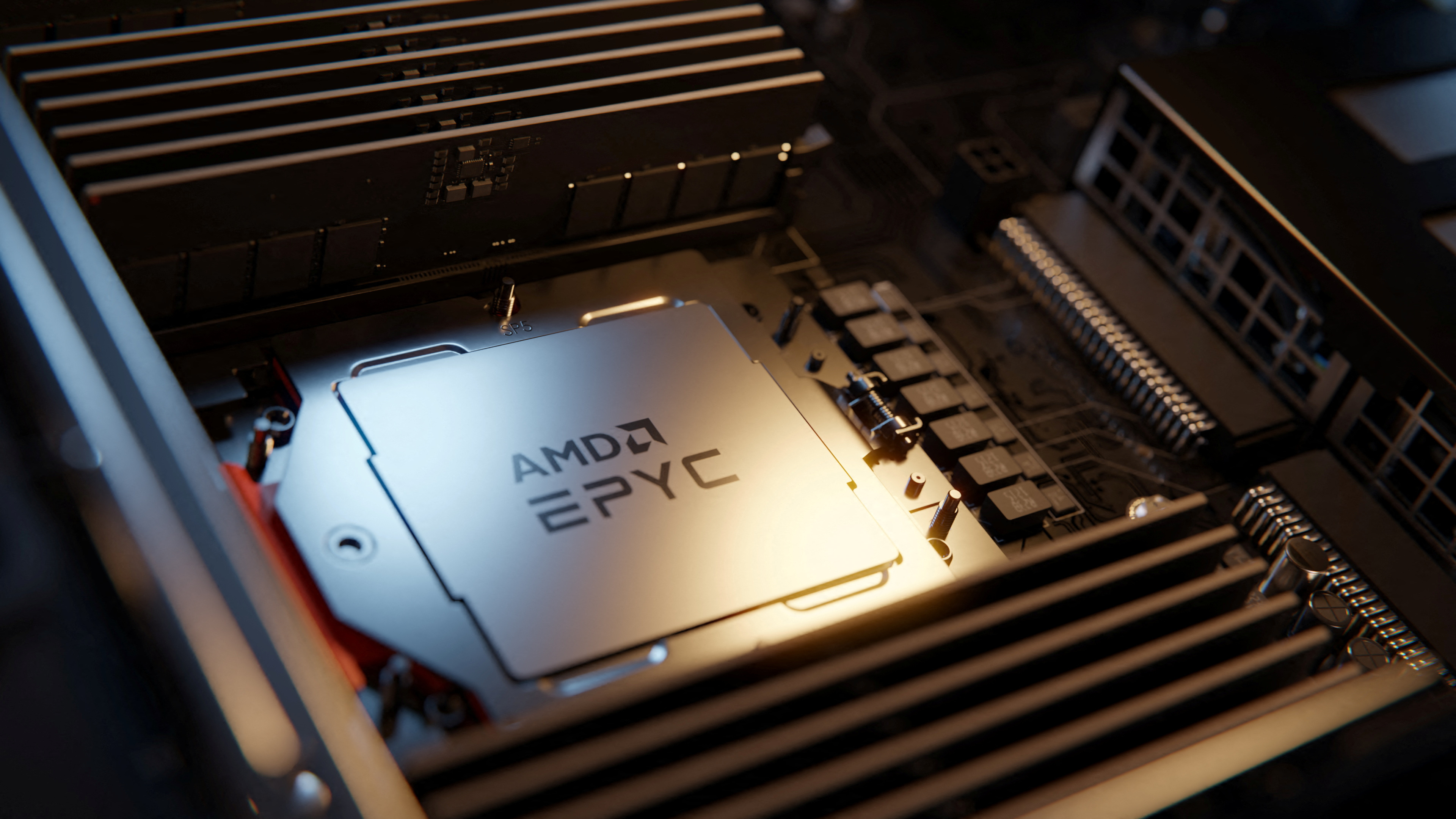Advanced Clustering to Offer HPC Solutions Powered by 4th Gen AMD EPYC 9004 Series Processors
Posted on November 13, 2022
Advanced Clustering Technologies is now offering a new wave of high performance computing solutions powered by the new 4th Gen AMD EPYC 9004 series processors. With these new processors, our AMD-powered ACTblade and ACTserv solutions provide up to 50% more memory channels than any competitive x86 server CPU, a significant improvement in memory bandwidth.
Paired with PCIe Gen 5 support, 4th Gen AMD EPYC processors can enable a highly efficient data center for several hyperscale workloads. These new HPC solutions are built to support a wide range of demanding workloads that include GPU-centric, high-density, edge, and general computing.
About the AMD EPYC Series Processor
These latest AMD EPYC processors, which were officially announced the week before SC22 in mid-November 2022, feature significant compute performance and scalability by combining high core counts with impressive PCIe and memory throughput. These new AMD EPYC 9004 series processors move to a new SP5 socket, a brand new architecture that leads the way to faster data insights with high performance and built-in security features.
Here is an overview of the new processors’ key advancements:
- Up to 96 cores and 192 threads
- Maximum boost clock up to 4.4GHz
- Up to 384MB L3 cache
- Support for 12 channel DDR5-4800
- Support for PCIe Gen 5, 160 lanes in 2P
- Up to 4 links of Gen3 AMD Infinity Fabric (up to 32Gbps)
Advanced Clustering’s new AMD-based HPC systems are optimized for the most demanding workloads in HPC, AI and machine learning. Learn more at advancedclustering.com.
Categories
- ACTnowHPC (8)
- AMD (5)
- Big Data (1)
- Case Studies (6)
- Cloud HPC Computing (16)
- Cluster Management (2)
- Clusters (12)
- ClusterVisor (5)
- Company News (46)
- Customer Service (3)
- eQUEUE (4)
- GPU Computing (11)
- Grant Writing (25)
- HPC Clusters (46)
- HPC Compute Blocks (3)
- HPC in the news (67)
- HPC Resources (61)
- Infiniband (3)
- Intel Xeon (19)
- Knights Landing (2)
- NVIDIA GPUs (2)
- NVIDIA Tesla GPUs (1)
- Omni-Path (2)
- Servers (6)
- Storage (5)
- Tech Tips (5)
- Trade Shows (39)
- Uncategorized (59)
- Workstations (3)
Recent Posts
- Our Latest ACTserv Systems Feature Intel Xeon 6 with Performance Cores
- Unleash the Power of AI & HPC Growth with Cornelis Networks CN5000
- DURIP Grant Proposals Due April 25th
- Supercomputing is Coming to Missouri this November
- ACT Celebrates 24th Year in Business, Previews Release of ClusterVisor 2.X
archives
- April 2025
- March 2025
- February 2025
- January 2025
- December 2024
- November 2024
- October 2024
- September 2024
- July 2024
- June 2024
- May 2024
- February 2024
- January 2024
- December 2023
- October 2023
- August 2023
- July 2023
- June 2023
- May 2023
- April 2023
- March 2023
- February 2023
- January 2023
- December 2022
- November 2022
- October 2022
- September 2022
- August 2022
- June 2022
- May 2022
- April 2022
- March 2022
- February 2022
- January 2022
- December 2021
- November 2021
- October 2021
- September 2021
- August 2021
- July 2021
- June 2021
- May 2021
- April 2021
- March 2021
- February 2021
- January 2021
- December 2020
- November 2020
- October 2020
- September 2020
- August 2020
- July 2020
- June 2020
- May 2020
- April 2020
- March 2020
- February 2020
- January 2020
- December 2019
- November 2019
- October 2019
- September 2019
- August 2019
- July 2019
- June 2019
- May 2019
- April 2019
- March 2019
- February 2019
- January 2019
- November 2018
- October 2018
- September 2018
- August 2018
- July 2018
- June 2018
- May 2018
- April 2018
- March 2018
- February 2018
- January 2018
- December 2017
- November 2017
- October 2017
- September 2017
- August 2017
- July 2017
- June 2017
- May 2017
- April 2017
- March 2017
- February 2017
- January 2017
- December 2016
- November 2016
- October 2016
- September 2016
- August 2016
- July 2016
- June 2016
- May 2016
- April 2016
- March 2016
- February 2016
- January 2016
- December 2015
- November 2015
- October 2015
- September 2015
- August 2015
- July 2015
- June 2015
- May 2015
- April 2015
- March 2015
- February 2015
- December 2014
- November 2014
- October 2014
- June 2014
- May 2014
- April 2014
- March 2014
- February 2014
- January 2014
Request a Consultation from our team of HPC and AI Experts
Would you like to speak to one of our HPC or AI experts? We are here to help you. Submit your details, and we'll be in touch shortly.
"*" indicates required fields
